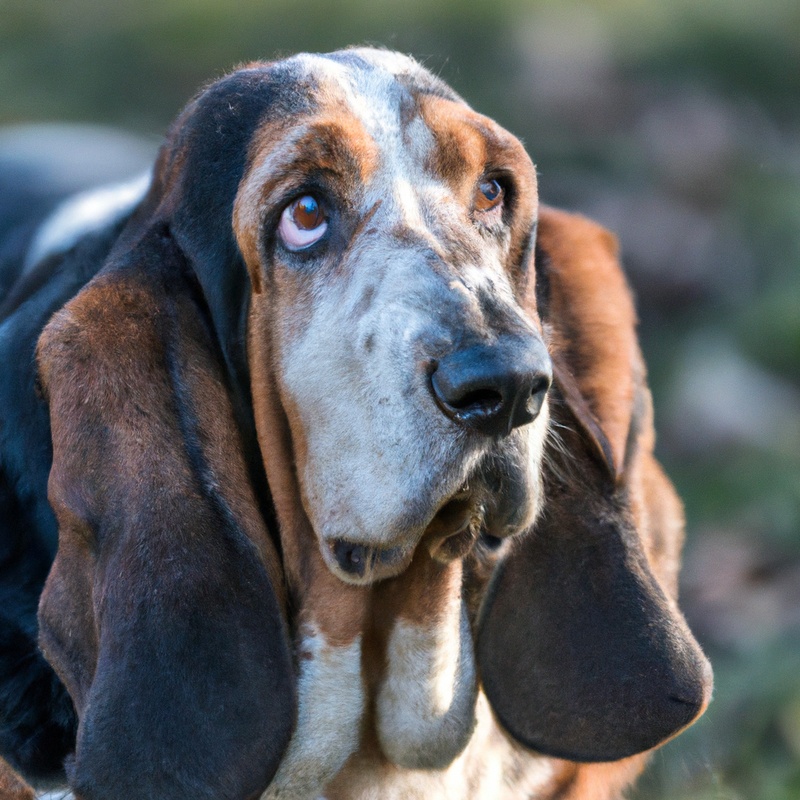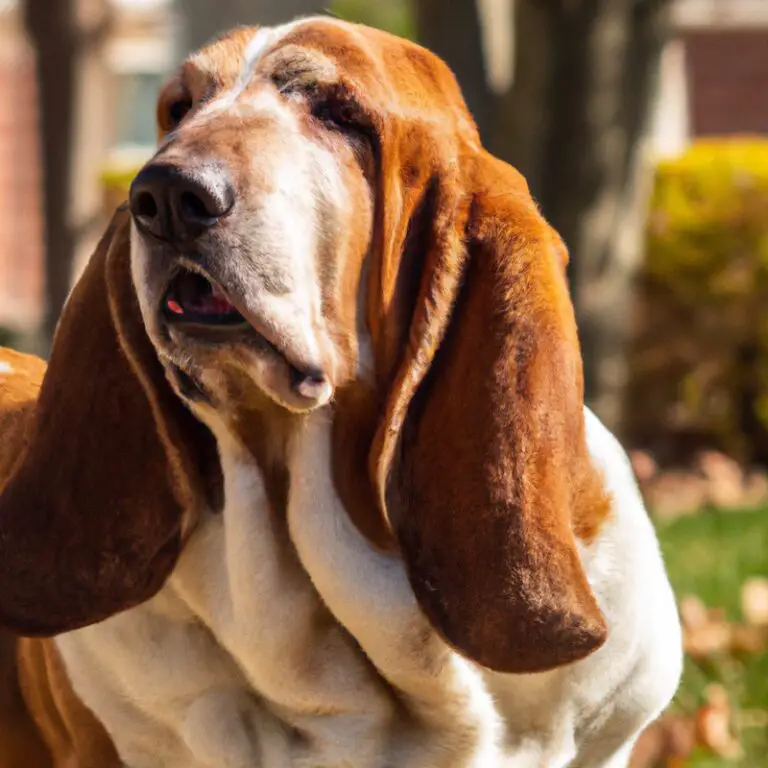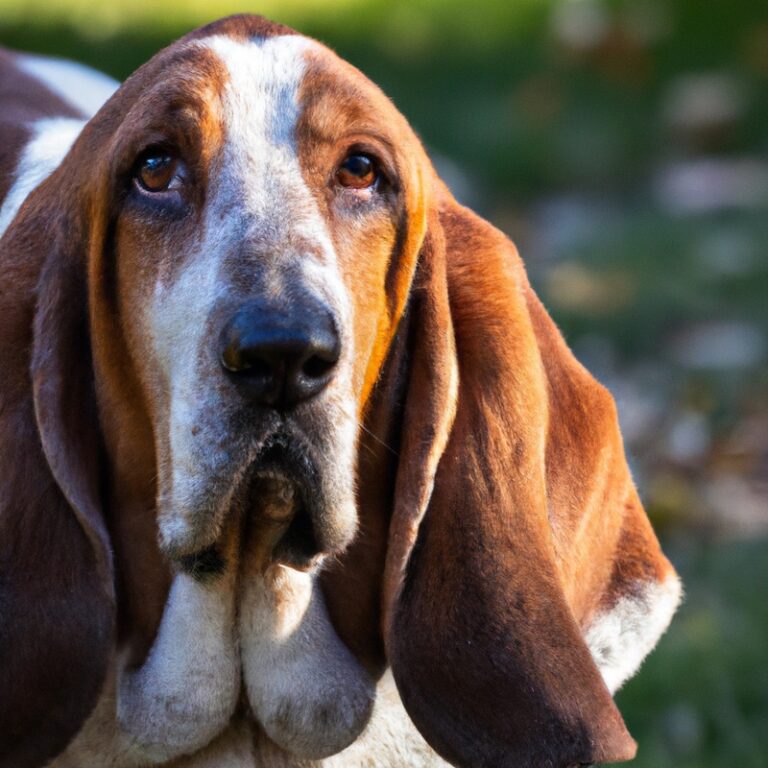Can Basset Hounds Be Trained To Be Therapy Dogs For Individuals With Multiple Disabilities?
Key Takeaways:
- Basset Hounds can be trained to be therapy dogs for individuals with multiple disabilities.
- Basset Hounds have a calm and gentle nature that makes them well-suited for therapy work.
- Training is crucial to ensure Basset Hounds can effectively respond to the needs of individuals with multiple disabilities.
- Basset Hounds can provide emotional support and companionship to individuals with multiple disabilities.
Imagine the unconditional love and support a therapy dog can provide to individuals with multiple disabilities. But can Basset Hounds, with their unique physique and temperament, fulfill this crucial role?
As a seasoned expert in therapy dog training, I’m here to shed light on this intriguing question.
Join me as we dive into the qualities a therapy dog should possess, delve into the significance of therapy dogs for those with multiple disabilities, explore the training process, discuss the challenges and considerations, and share valuable resources and organizations. Get ready to uncover the untapped potential of these lovable droopy-eared companions!
| Basset Hounds as Therapy Dogs | Yes | No |
|---|---|---|
| Trainability | + | – |
| Temperament | + | – |
| Size | + | – |
| Physical Abilities | + | – |
| Sensitivity | + | – |
| Patient Interaction | + | – |
| Focus and Concentration | + | – |
| Training Time | + | – |
Qualities of a therapy dog
Temperament and personality traits required
Temperament and personality traits play a crucial role in determining whether a dog is suitable to be a therapy dog. Some of the important qualities include calmness, patience, friendliness, and a gentle disposition.
Therapy dogs should be comfortable in various environments and be able to handle different situations without getting anxious or reactive.
They should also possess good social skills and have an innate desire to interact and connect with people. Additionally, a therapy dog should be adaptable, reliable, and have the ability to remain focused and provide comfort to individuals with multiple disabilities.
Trainability and intelligence of Basset Hounds
Basset Hounds are known for their independent nature, which can make training a bit challenging. However, with patience, consistency, and positive reinforcement methods, they can be trained to be therapy dogs.
While they may not be the quickest learners, Basset Hounds are intelligent and can pick up commands and cues with practice.
It’s important to tailor the training to their specific needs and keep sessions short and engaging to maintain their focus. With the right approach, Basset Hounds can become successful therapy dogs for individuals with multiple disabilities.

Importance of therapy dogs for individuals with multiple disabilities
Benefits of therapy dogs in improving quality of life
Therapy dogs have numerous benefits for individuals with multiple disabilities, greatly improving their quality of life.
These furry companions offer emotional support, help reduce stress and anxiety, and provide a sense of comfort and companionship.
Additionally, therapy dogs can enhance socialization skills and encourage physical activity through play and interaction.
The bond between a therapy dog and their handler can be truly transformative, offering a source of unconditional love and emotional connection.
Overall, therapy dogs play a valuable role in improving the overall well-being and happiness of individuals with disabilities.

Specific advantages of Basset Hounds as therapy dogs
Basset Hounds have specific advantages that make them excellent therapy dogs for individuals with multiple disabilities. Firstly, their gentle and friendly nature helps create a calming and comforting environment for those they interact with.
Additionally, their low energy level makes them well-suited for individuals who may require a more relaxed and less active dog.
Basset Hounds also have a keen sense of smell, which can be beneficial in certain therapeutic activities. Overall, these unique qualities make Basset Hounds a great choice for therapy work.
Training process for therapy dogs
Initial evaluation and assessments
Before beginning therapy dog training, an initial evaluation and assessment must be conducted. This helps determine if a Basset Hound is suitable for therapy work.
During the evaluation, trainers assess the dog’s temperament, behavior, and social skills.
They look for qualities such as calmness, sociability, and willingness to interact with different people. Additionally, the dog’s obedience level is evaluated to ensure a strong foundation for training.
This initial assessment is crucial in selecting dogs with the right traits to become successful therapy dogs.
Basic obedience training for therapy dogs
Basic obedience training is an essential foundation for therapy dogs. It helps them develop good manners, self-control, and reliability in various situations.
This training involves teaching dogs commands like sit, stay, come, and walking on a loose leash.
Positive reinforcement techniques using treats, praise, and rewards are used to encourage and motivate the dogs. Consistency, patience, and regular practice are key in ensuring that therapy dogs master these commands.
This training not only helps therapy dogs become well-behaved and obedient but also prepares them for more advanced tasks and interactions with individuals with disabilities.

Advanced training for specific tasks
Advanced training for specific tasks involves teaching therapy dogs to perform specialized tasks that cater to the individual needs of individuals with multiple disabilities.
This includes tasks such as retrieving medication, assisting with mobility, alerting to medical emergencies, providing deep pressure therapy, and more.
The training process focuses on reinforcing desired behaviors through positive reinforcement and using specialized techniques tailored to each task.
This training allows therapy dogs to effectively meet the unique requirements of the individuals they are working with, enhancing their quality of life and independence.
Challenges and considerations
Physical limitations of Basset Hounds
Basset Hounds, although wonderful dogs, do have some physical limitations that can affect their suitability as therapy dogs for individuals with multiple disabilities. One limitation is their size and body structure.
Bassets are low to the ground and have long, droopy ears and loose skin, which can make it difficult for them to navigate certain environments or perform tasks requiring agility.
Additionally, their short legs and heavy build can limit their endurance and make it challenging for them to engage in prolonged physical activities. However, it’s important to note that every dog is unique and some Bassets may still excel in therapy work despite these limitations.
Potential health issues and implications for therapy work
Potential health issues and implications for therapy work vary depending on the breed and individual dog.
In the case of Basset Hounds, some common health concerns include back problems, obesity, and ear infections due to their long ears.
These issues can impact their ability to perform certain tasks or participate in therapy activities.
It is essential to consider a Basset Hound’s health condition, as it may affect their overall well-being and suitability for therapy work.
Regular veterinary check-ups and proper care are key to ensuring the dog’s health and successful participation in therapy programs.
Resources and organizations for therapy dog training
Established organizations specializing in therapy dog training
There are several established organizations that specialize in therapy dog training.
Some notable ones include Therapy Dogs International (TDI), Canine Companions for Independence (CCI), and the Alliance of Therapy Dogs.
These organizations have years of experience and expertise in training therapy dogs to provide support and comfort to individuals in need.
They offer comprehensive programs that cover everything from basic obedience to advanced therapy dog skills.
Joining one of these organizations can provide valuable guidance and resources for those interested in training their dog to become a therapy dog.
Online resources and training programs for Basset Hounds
There are several online resources and training programs available specifically for Basset Hounds.
These resources can help you in training your Basset Hound to become a therapy dog.
Some of these programs offer step-by-step training guides, videos, and tutorials to assist you in the training process.
Online forums and communities geared towards therapy dogs can also provide valuable insights and support.
These resources can be a convenient and accessible way to access training materials, tips, and guidance for your Basset Hound.
Final Verdict
Basset Hounds can indeed be trained to be therapy dogs for individuals with multiple disabilities. Their gentle and calm temperament, along with their intelligence and trainability, make them excellent candidates for this role.
Therapy dogs, including Basset Hounds, have shown immense benefits in improving the quality of life for individuals with disabilities.
Although Basset Hounds may have physical limitations and potential health issues, with proper training and support, they can make a significant impact on the lives of those they assist. Overall, Basset Hounds have the potential to be wonderful therapy dogs, bringing comfort and joy to individuals with multiple disabilities.








